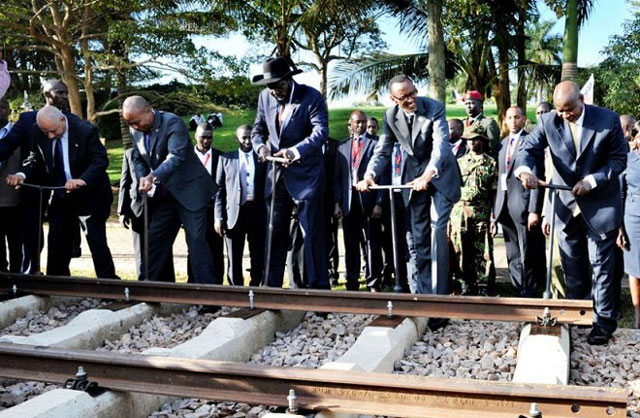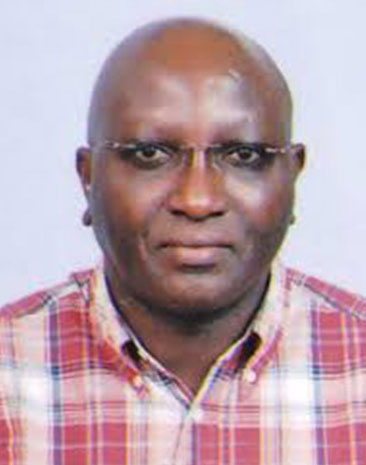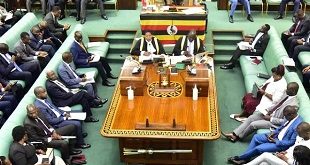
Initial EAC unity did not last long
As part of the practical measures to respond to the pandemic regionally, the EAC undertook a number of activities including, training of EAC laboratory experts (1 from each partner states); procured 9 mobile laboratories for the partner states; provided each partner state with 100 test kits for COVID-19; and developed EAC administrative guidelines to facilitate the movement of goods and services in the region.
Notwithstanding these measures however, each partner state adopted its own national strategy to combat the pandemic. For example, while Uganda and Rwanda imposed total lockdowns, Kenya and South Sudan went for partial lock-downs. On the other hand, life in Burundi and Tanzania continued as normal. In fact, Burundi held general elections in May 2020.
The question is: Why have the partner states not adopted a common strategy to combat the pandemic?
The fact is that in recent times, the COVID-19 pandemic has only highlighted the existing cracks in the EAC integration process.
Two examples will suffice: the worsening relations between some partner states due to unresolved grievances; and the implementation of protocols relating to free movement of goods, persons and services.
Relations between partner states
Before the COVID-19 pandemic struck the region, several partner states were at loggerheads due to unresolved grievances. For example, the Rwanda and Uganda relations hit rock bottom at the start of 2018.
Kigali leveled several accusations against Uganda including: Ugandan security agencies targeting for deportation Rwandans living in Uganda, and Rwandan rebel outfit called Rwanda National Congress (RNC) led by renegade General Kayumba Nyamwasa recruiting in Uganda with the aim of destabilizing Rwanda.
Uganda in turn accused Rwanda of meddling in its internal affairs including infiltrating its security.
Both countries have denied accusations against them. Several meetings including summit meetings between Presidents Kagame and Museveni under the mediation of Angola, are yet to resolve the issues. Meanwhile, the common border between the two partner states remains closed.
Burundi-Rwanda relations began to sour in 2013 when Rwanda accused Burundi of hosting the Democratic Forces for the Liberation of Rwanda (FDLR) insurgents who hitherto had been based in DRC.
Relations worsened following the late President Nkurunziza’s decision to run for a third term leading to many of his critics in Burundi to flee to Rwanda.
In June 2018, it is alleged the Burundian security forces and their proxies launched an armed attack in Nyabimata Sector of Rwanda’s Southern Province.
Rwanda also accused Burundi of imposing a blockage of the movement of goods and passenger vehicles across the border, which it says violates the EA Common Market Protocol.18 Statistics from the Rwanda Institute of Statistics shows that neither Rwanda nor Burundi has imported or exported to the other for several years.

Implementation of economic protocols
Article 104 of the EAC Treaty provides for the free movement of persons, labor, services and right of establishment and residence. This article has been buttressed by Article 7 of the Common Market Protocol which spells out the details of these rights. Due to the fear of the spread of COVID-19, partner states tightened controls of their borders. For example, with regard to the free movement of services, Tanzania and Kenya banned each other’s airlines from operating in their territory although the issue seems to have now been resolved.
Nevertheless, the problem surrounding the implementation of the Common Market, is for example highlighted by the issues of the free movement of labor and goods.
The Common Market allows workers from any partner state to accept employment, including social security benefit, within any other EAC country without being discriminated against on the basis of their nationality. However, it has been observed that ‘some partner states have put in place stringent measures-and fees- that make it difficult for the free movement of both skilled and unskilled labor’
COVID exposes East Africa
Whilst the EAC region has been declared as the most integrated in Africa, the COVID-19 pandemic has exposed the hollowness of this assertion.
The COVID-19 pandemic has widened the cracks in the integration arrangement which already existed before, in the areas including the implementation of the economic protocols.
To bridge the cracks, the region needs to reset the integration agenda by for example, doing the following:
• Resolve their political differences that have hitherto stymied cooperation; and
• Implement the EAC Treaty and the Protocols concluded in various areas in good faith, including the EAC COVID-19 Response Plan.
In the end, the Corona virus pandemic does not respect national boundaries, and thus provides an opportunity for the partner states to evolve a regional solution to the problem. This is exactly what the framers of the EAC had in mind when they embarked on the regional integration journey.
*****
 Assoc. Prof. Kasaija Phillip Apuuli teaches in the Department of Political Science and Public Administration, Makerere University, Kampala
Assoc. Prof. Kasaija Phillip Apuuli teaches in the Department of Political Science and Public Administration, Makerere University, Kampala
This is part of an ACODE Centre for Budget and Economic Governance (CBEG) brief January 2021
 The Independent Uganda: You get the Truth we Pay the Price
The Independent Uganda: You get the Truth we Pay the Price



